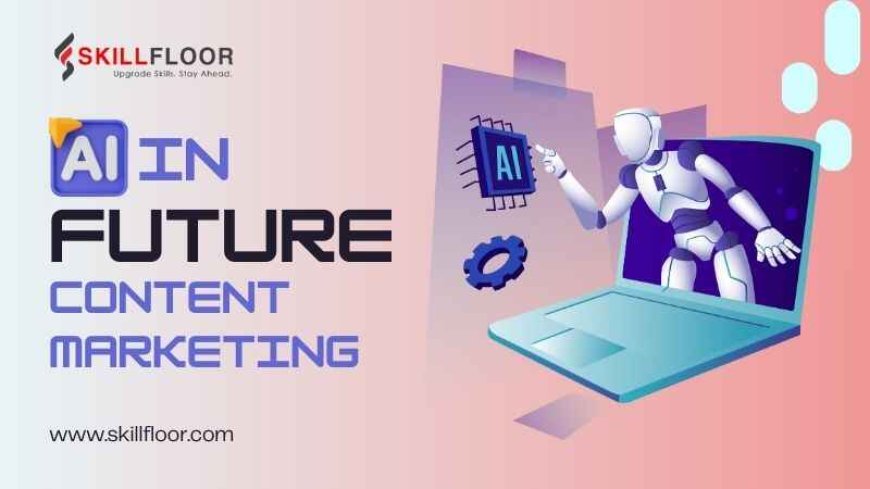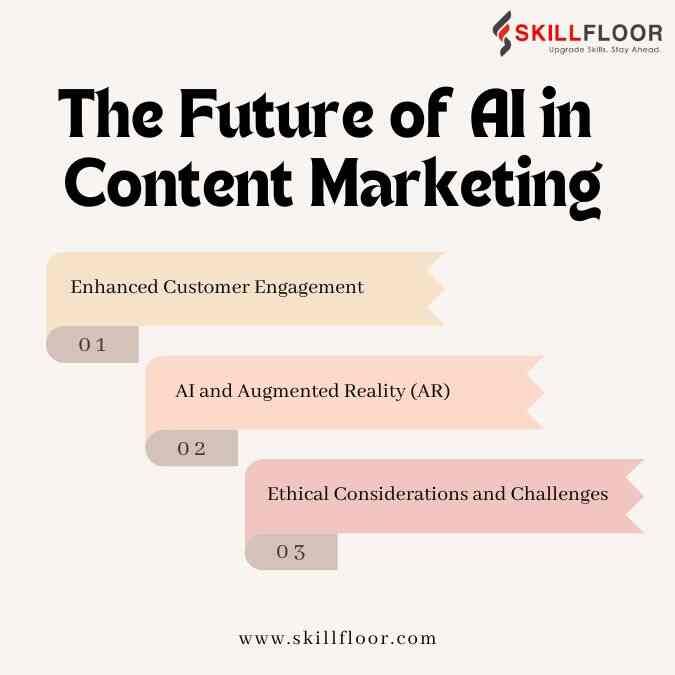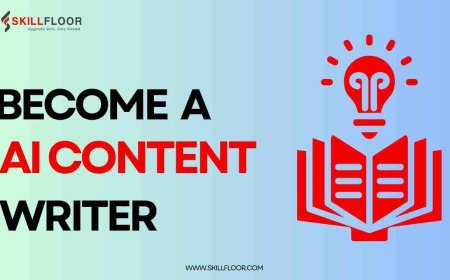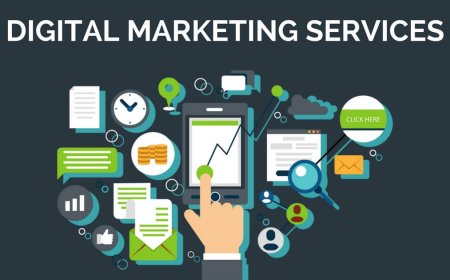How AI is reshaping content marketing trends
xplore AI's impact on content marketing trends, from personalized content creation to predictive analytics, shaping future digital strategies.

In the dynamic world of content marketing trends, artificial intelligence (AI) is playing a growing role in shaping how we create and share content. AI helps marketers by analyzing large sets of data to understand audience preferences and behaviors. This means brands can tailor their content more precisely to what their audience wants to see. By doing so, they can engage their audience more effectively and make their marketing efforts more efficient. This personalized approach is becoming a key part of digital marketing, helping businesses connect with their audience in meaningful ways.
AI is also making the content creation process easier and more efficient. It can help generate interesting copy, suggest relevant visuals, and even predict which topics might attract the most attention. For those working in digital marketing, keeping up with the latest content marketing trends is important, and AI is providing valuable tools to do just that. With AI taking care of routine tasks and offering useful insights, marketers have more time to focus on being creative and strategic. As AI continues to develop, its role in content marketing is set to grow, opening up new possibilities for how we engage with our audiences online.
Enhancing Content Distribution with AI
Optimizing Content Delivery
AI is also transforming how content is distributed and delivered. Traditionally, marketers relied on a mix of intuition and data analysis to determine the best times and channels for content distribution. Today, AI algorithms can analyze past performance, audience engagement patterns, and even external factors like seasonality or current events to optimize content delivery.
For example, AI can predict the best times to post on social media or the optimal frequency for email newsletters. This ensures that content reaches the right audience at the right time, maximizing its impact and engagement.
SEO and Content Optimization
Search Engine Optimization (SEO) is a critical component of any content marketing strategy. AI tools are now available that can analyze keyword trends, competitive content, and search engine algorithms to provide actionable insights for content optimization.
Tools like SEMrush and Ahrefs use AI to suggest keywords, analyze content gaps, and even predict how changes in search algorithms might impact content visibility. This allows marketers to stay ahead of SEO trends and ensure their content ranks highly in search engine results.
AI-Driven Insights and Analytics
Advanced-Data Analytics
AI's ability to process and analyze vast amounts of data is revolutionizing the way marketers understand and leverage analytics. Traditional analytics tools often provide retrospective insights – what happened and why. AI-driven analytics, on the other hand, can offer predictive and prescriptive insights – what will happen and how to optimize for it.
For example, AI can analyze user engagement data to predict which topics are likely to trend next or which content formats will perform best. This allows marketers to proactively adjust their strategies and stay ahead of emerging trends.
Sentiment Analysis
Understanding how audiences feel about content is as important as knowing how they engage with it. AI-powered sentiment analysis tools can analyze social media comments, reviews, and other user-generated content to gauge public sentiment. This helps brands understand the emotional response their content elicits and adjust their messaging accordingly.
For instance, if a brand's new campaign is receiving negative feedback, AI can quickly identify this trend and provide insights into the underlying issues, allowing marketers to respond swiftly and mitigate any potential damage.
The Future of AI in Content Marketing
-
Enhanced Customer Engagement
Looking ahead, AI promises to deepen customer engagement in content marketing. As AI technologies continue to advance, they will enable more sophisticated interactions between brands and consumers. For example, AI-driven chatbots are becoming increasingly adept at engaging users in personalized conversations, providing instant responses to queries, and even offering content suggestions based on user interests.
-
AI and Augmented Reality (AR)
The integration of AI with augmented reality (AR) is another exciting frontier in content marketing. AR experiences, powered by AI, can create immersive and interactive content that captivates audiences. Brands like IKEA and Sephora have already leveraged AR to enhance their marketing strategies, allowing customers to visualize products in their environments before making a purchase.
-
Ethical Considerations and Challenges
While the potential of AI in content marketing is vast, it's also important to consider the ethical implications and challenges. Issues like data privacy, algorithmic bias, and the potential for misinformation need to be addressed as AI continues to play a larger role in content creation and distribution. Marketers must ensure that their use of AI aligns with ethical guidelines and fosters trust with their audiences. Transparency in how AI-generated content is used and a commitment to data privacy are crucial in this regard.

How AI is Revolutionizing Content Creation
Automated Content Generation
One of the most talked-about applications of AI in content marketing is automated content generation. Tools powered by Natural Language Processing (NLP) and Machine Learning (ML) algorithms can now produce written content that is coherent, contextually relevant, and tailored to specific audiences.
For instance, AI-driven platforms like OpenAI's GPT series can generate articles, social media posts, and even creative writing pieces. This not only saves time but also ensures a consistent content output. While AI-generated content might not completely replace human writers, it serves as a powerful tool for content ideation and bulk content production.
Personalized Content Experiences
Personalization is more than a buzzword; it's a necessity. Consumers expect brands to understand their preferences and deliver content that resonates with them on a personal level. AI enables marketers to analyze vast amounts of data and gain insights into individual user behaviors and preferences.
With these insights, AI can tailor content recommendations, ensuring that each user receives a unique and relevant experience. Platforms like Netflix and Spotify have set benchmarks in this area, using AI to curate personalized content for their users. This trend is now spilling over into broader content marketing strategies, where AI is used to personalize everything from email campaigns to website content.
AI is undeniably reshaping the landscape of content marketing trends. From automated content generation and personalized experiences to optimized content distribution and advanced analytics, AI offers powerful tools that can enhance every aspect of content marketing. As AI technologies continue to evolve, they will unlock even more possibilities, driving innovation and helping brands connect with their audiences in deeper, more meaningful ways.




























































